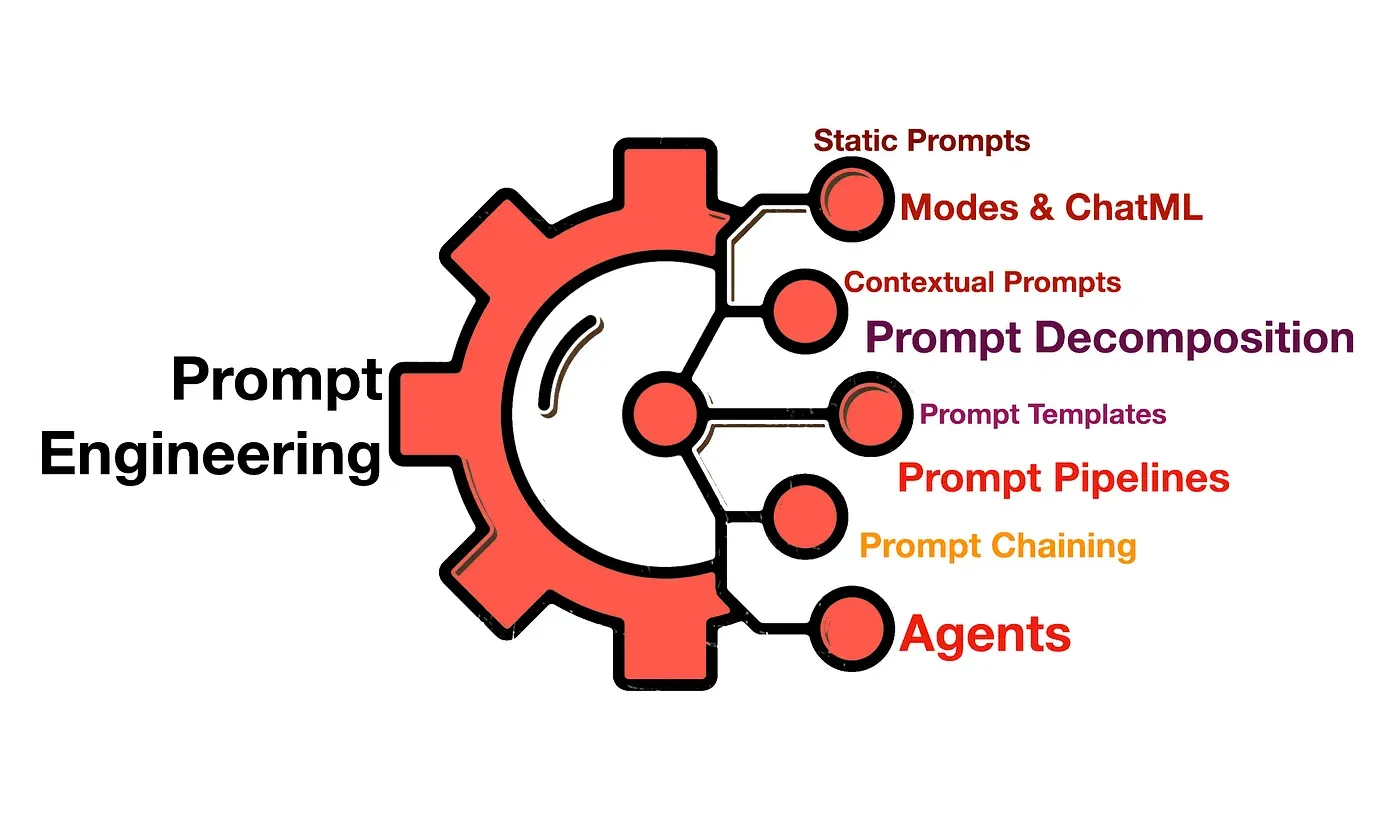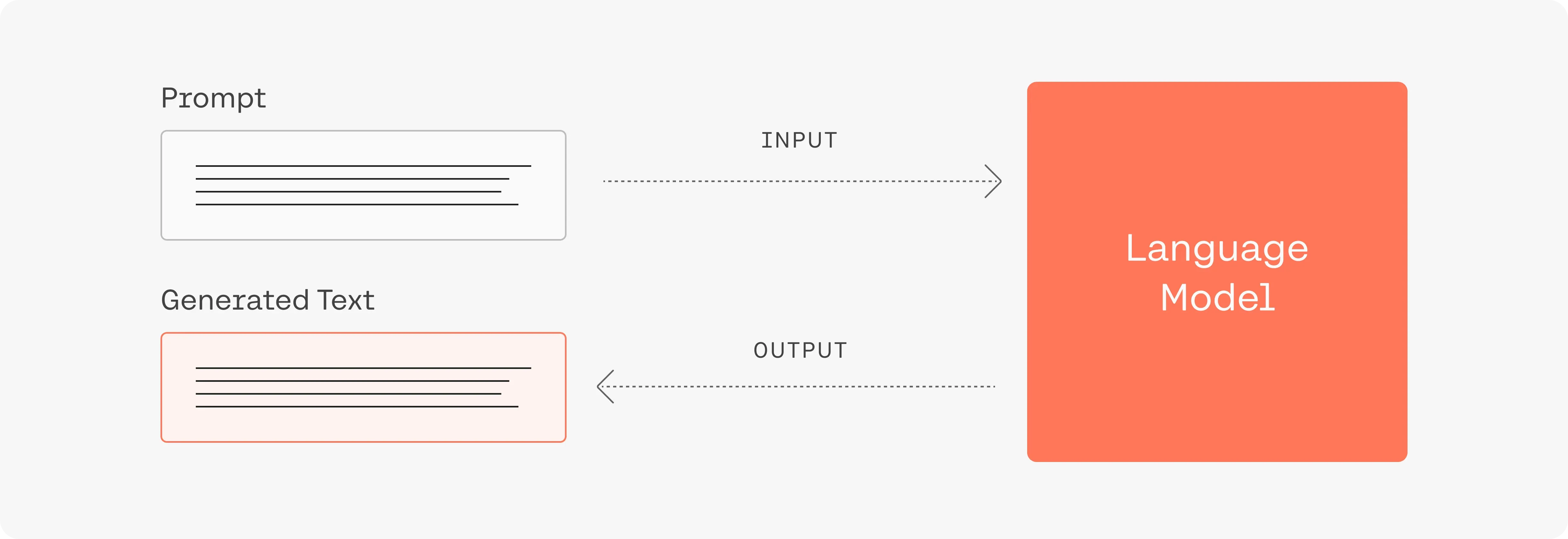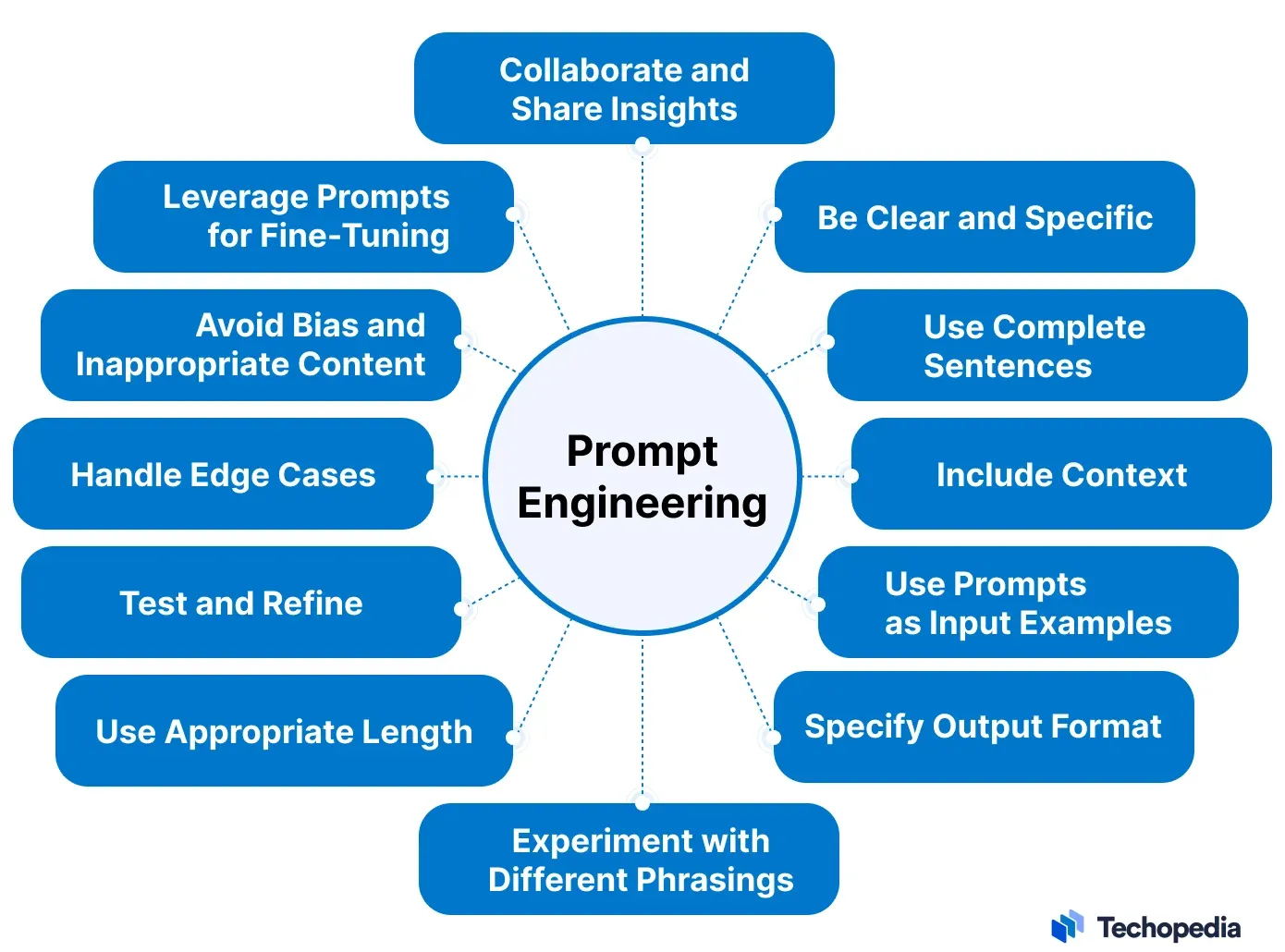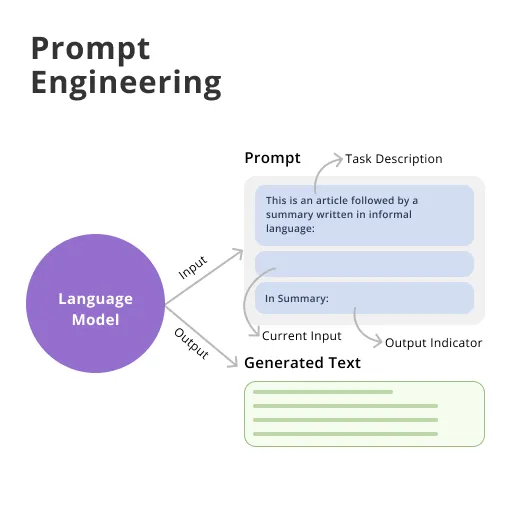What is Prompt Engineering?
Prompt engineering is the art of crafting and refining prompts to effectively guide AI models, such as chatbots or text generators, in producing the desired outputs or responses.
It plays a crucial role in improving the performance of AI systems by helping them better understand user inputs and generate more accurate, relevant, and contextually appropriate results.
In prompt engineering, the focus is on understanding the nuances of natural language processing and the capabilities of AI models.

It requires a mix of creativity, analytical thinking, and a deep understanding of how AI systems interpret and respond to prompts.
Why is Prompt Engineering Important?
Prompt engineering is becoming increasingly important in the field of artificial intelligence (AI) because it plays a crucial role in crafting queries that help generative models understand not just the language but also the nuance and intent behind the query.
Enhancing AI Model Performance
Prompt engineering is essential for improving AI model performance, as it helps systems better understand user inputs and generate accurate, relevant, and contextually appropriate responses.
Optimizing User Experience
By crafting effective prompts, you can guide AI models to provide more meaningful and engaging interactions, leading to a better overall user experience and increased user satisfaction.
Reducing Ambiguity and Misinterpretation
Well-designed prompts help minimize ambiguity and misinterpretation, ensuring that AI models can comprehend user inputs and deliver the desired output, reducing the likelihood of errors or misunderstandings.
Leveraging AI Model Capabilities
Prompt engineering allows you to fully harness the capabilities of AI models by guiding them to generate creative, insightful, and valuable outputs that meet specific user needs and expectations.
Adapting to Evolving AI Systems
As AI models continue to evolve and improve, prompt engineering remains crucial for staying ahead of the curve and ensuring that AI systems can effectively address a wide range of user requirements and scenarios.
Use Cases of Prompt Engineering
Prompt engineering has numerous use cases across various industries and applications. Some prominent use cases include:
Enhancing AI Conversations
Prompt engineering helps create more engaging and meaningful AI interactions by refining the questions and statements that guide the AI model's responses.
It's like having a skilled writer who knows how to make AI conversations feel more natural and enjoyable.
Improving AI Training
Crafting effective prompts is essential for training AI models, as it ensures they learn from relevant and diverse examples.
With prompt engineering, it's like having a dedicated teacher who knows how to bring out the best in AI students.
Personalizing User Experiences
By tailoring prompts to specific user needs and preferences, prompt engineering can create personalized AI experiences.
It's like having a thoughtful friend who knows how to make every interaction feel unique and customized.
Streamlining AI Development
Prompt engineering streamlines AI development done by prompt engineers by focusing on the most effective prompts, reducing the need for extensive fine-tuning and trial-and-error.
It's like having an experienced guide who knows the shortcuts to building a better AI.
Expanding AI Applications
With prompt engineering, AI models can be guided to tackle a wide range of tasks, from content generation to data analysis, opening up new possibilities for AI applications.
It's like having a versatile artist who can create masterpieces in any domain.
Who uses Prompt Engineering?
Prompt engineering is utilized by various organizations and professionals in different fields. Some of the key users of prompt engineering include:
- AI Developers and Researchers: AI developers and researchers use prompt engineering to refine and optimize AI models, enhancing their performance and ensuring their effectiveness in various applications.
- Chatbot and Virtual Assistant Creators: Chatbot and virtual assistant creators leverage prompt engineering to design engaging conversational experiences and improve the accuracy and relevance of AI-generated responses.
- Content Generation and Marketing Teams: Content generation and marketing teams use prompt engineering to guide AI models in producing creative, contextually appropriate, and engaging content for various marketing channels.
- Customer Support and Help Desk Managers: Customer support and help desk managers implement prompt engineering to improve the efficiency and effectiveness of AI-powered support systems, enhancing customer satisfaction and issue resolution.
- AI Enthusiasts and Hobbyists: AI enthusiasts and hobbyists experiment with prompt engineering to better understand AI models, explore their capabilities, and create unique and innovative AI-powered projects.
How is Prompt Engineering implemented?

Implementing prompt engineering involves the following steps:
- Understanding Model Behavior: Prompt engineering begins with understanding the AI model's behavior, strengths, and limitations to craft prompts that effectively guide the model's responses.
- Defining Clear Objectives: Establishing clear objectives for the desired AI model output helps in designing prompts that align with the intended purpose and user expectations.
- Iterative Testing and Refinement: Prompt engineering involves testing various prompt structures, phrasings, and techniques, followed by iterative refinement to elicit the desired model responses.
- Leveraging Context and Constraints: Implementing context and constraints within prompts helps guide AI models to produce more accurate, focused, and relevant responses for specific use cases.
- Evaluating and Monitoring Performance: Continuous evaluation and monitoring of AI model performance with engineered prompts ensure ongoing improvements and adaptations to changing user needs and expectations.
Benefits of Prompt Engineering

Implementing prompt engineering in AI applications offers several benefits:
Enhanced AI Model Performance
Prompt engineering improves AI model performance by providing clear, concise, and well-structured prompts, ensuring more accurate and relevant responses.
Efficient Model Training
Effective prompt engineering reduces the need for extensive fine-tuning, saving time and resources during the model training process.
Better User Experience
Crafting well-designed prompts leads to more engaging and intuitive interactions between users and AI models, resulting in a better overall user experience.
Adaptability to Diverse Use Cases
Prompt engineering enables AI models to be tailored for specific use cases or industries, ensuring more targeted and relevant responses to user queries.
Continuous Improvement
As prompt engineering techniques evolve and improve, AI models can be updated and refined, ensuring they remain effective and useful over time.
While prompt engineering offers numerous benefits, there are also several challenges that users might face
Suggested Reading:
Hiring Prompt Engineers- easy way to AI automated efficiency
Crafting Unambiguous Prompts
Creating clear and unambiguous prompts is challenging, as it requires a deep understanding of natural language and the ability to anticipate potential misinterpretations by AI models.
Balancing Creativity and Constraints
Striking the right balance between creativity and constraints is crucial to guide AI models effectively, without limiting their potential or generating undesired outputs.
Adapting to Evolving AI Models
As AI models continue to evolve, prompt engineering must adapt to new capabilities and limitations, requiring continuous learning and experimentation.
Handling Multilingual and Cultural Nuances
Designing prompts that cater to multilingual and culturally diverse users is challenging, as it demands an understanding of linguistic subtleties and cultural context.
Measuring and Iterating on Effectiveness
Quantifying the effectiveness of prompts and iterating on their design can be difficult, as it involves assessing both objective and subjective aspects of AI-generated outputs.
Frequently Asked Questions (FAQs)
How does prompt engineering improve AI performance?
Prompt engineering helps AI models better understand user inputs, resulting in more accurate, relevant, and contextually appropriate responses or generated text.
Can prompt engineering be applied to any AI model?
Yes, prompt engineering can be applied to various AI models, including chatbots, language models, and recommendation systems, to enhance their performance and user experience.
What skills are needed for prompt engineering?
Prompt engineering requires creativity, an understanding of AI models and natural language processing, and the ability to analyze and iterate on prompt designs for optimal results.
How to start learning about prompt engineering?
To begin learning about prompt engineering, explore resources on AI models, natural language processing, and experiment with designing prompts for popular AI platforms like OpenAI's GPT-3

